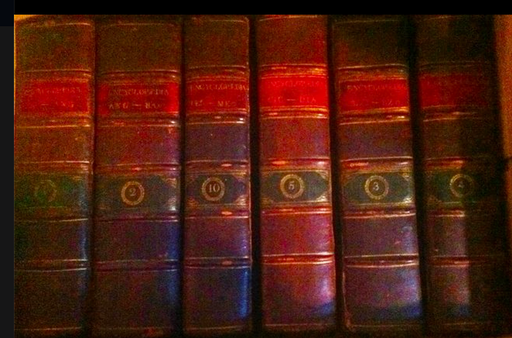In Praise of Print

A few days ago I was sitting in class, waiting for the handlebar-mustachioed professor to begin another lecture on 19th-century England. Midterm examinations were over—in this case, one of those timed essays that account for 50% of your grade—and my classmates, recovering from academic shell shock, discussed their respective performances on the test. The comprehensive nature of the examination, it seemed, had driven many of us to compile brief summaries and bullet points on specific events and figures. We wanted to be prepared for whatever topics might test our knowledge.
And that’s when Wikipedia took a beating. OK, it might have actually been our collective nerdiness shining forth in all its book-loving glory; we were all history majors in that room, after all. But here, in the Civil Engineering building no less, were four early-twenties college students reminiscing about World Book Encyclopedia. That’s right: reminiscing. That is, fondly recalling the days of the endless entertainment we had with the cumbersome, technologically inept, culturally outdated, wonderful old print encyclopedias that once graced the bookshelves of our homes and libraries.
This reminded me of a few complaints I have about online information sources, as well as my undying love for the encyclopedia on which I was raised. Here’s some food for thought:
1. Wikipedia rambles. We’re good students who take our assigned readings seriously. But there are times when we just need a quick summary of the basic details. Wikipedia doesn’t have that. It’s great if you’re collecting interesting tidbits and anecdotes, but if you just need reference points in a pinch, you have to wade through a vomitous amount of well-meaning but cumbersome material. Publications like World Book, however, compile(d) information beautifully. Find an article, scan it, get what you need, and go on your merry way. You don’t need to exert too much effort to learn quickly.
2. Outdated is OK. I grew up absorbing the 1992 World Book. Every other article ends with “The Soviet Union dissolved in 1991” because it was the newest Big Thing. It didn’t bother me that the War on Terror, Hurricane Katrina, or the 1994 Republican Revolution were never mentioned. You have news services for current events; you have encyclopediae for hindsight. Plus, there’s timeless information in these volumes—over the scope of human history, most facts just don’t change in twenty years. If you want the newest perspectives on these facts, go read a book about them. The encyclopedia is the place for brevity.
3. Print is educational. I would be a different person had I grown up reading Wikipedia instead of World Book. Wikipedia gets you into a niche of interrelated topics, which is fine—but it won’t expand you in the way that an encyclopedia, alphabetically ordered, will introduce you to a host of independent subjects. The Ch volume teaches me about cheese, chemistry, and the origin of chess, with fascinating tables and pictures along the way. Wikipedia might do the same, but it will be less randomized: you click with intention instead of flipping open by accident.
I like Wikipedia. I use it enough that I get that twinge of guilt whenever Jimmy Wales starts pleading for more money. It’s fun to fritter away the time learning useful information, and while I never cite Wikipedia in papers (of course), it’s a handy way to trace the more reliable sources listed in the works cited section.
But I remain allegiant to the print encyclopedia. In its succinct, readable style, that 22-volume 1992 World Book at home taught me a wealth about history, languages, government, literature, prominent figures, science, culture, music, food, geography, and a dozen other subjects. From the age of eight onward, I was fueled with a sense of curiosity and a passion for learning, thanks to World Book. Could Wikipedia have done the same? I honestly doubt it, much as I appreciate that site. The print encyclopedia got to the point, presented me with the most important and timeless facts, and engrossed me in a randomized collection of fascinating topics. It was one of the best purchases my parents ever made, and I hope to pass the set on to my children someday. For the sake of individual learning, I stick to the praise of the print encyclopedia.
Discussion — No responses